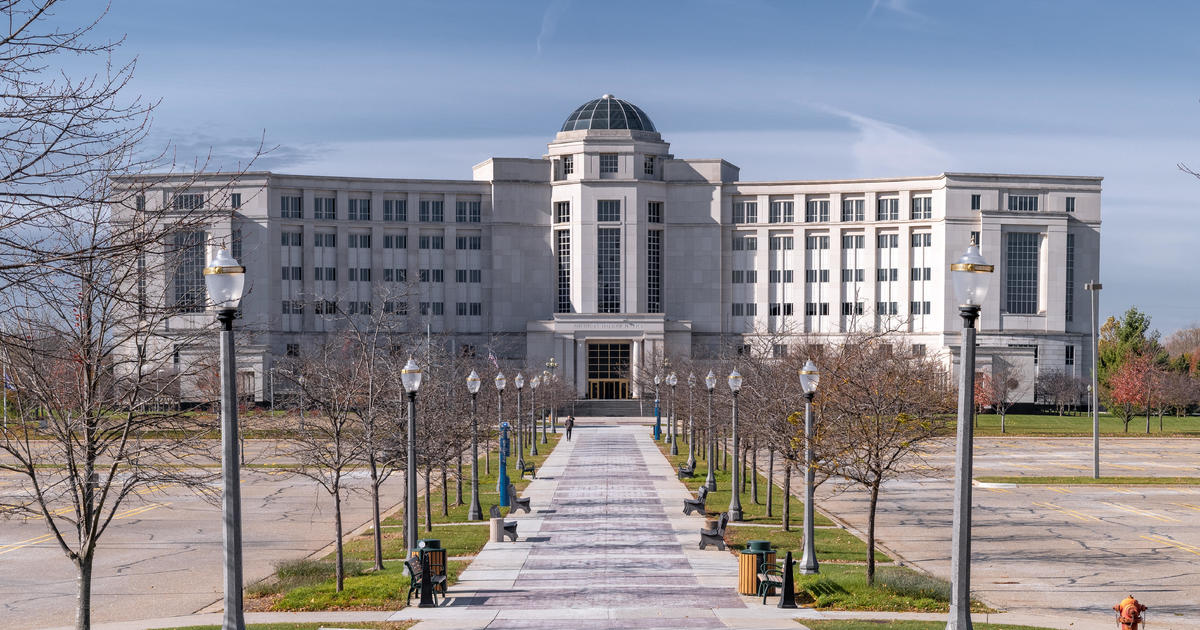House Panel OKs Income Tax Cut Over Snyder's Opposition
By David Eggert, Associated Press
LANSING (AP) - A Republican-led House panel voted Wednesday to cut Michigan's income tax next year and eliminate it over a number of decades, despite "serious concerns" lodged by Gov. Rick Snyder.
Supporters said the bill , approved 7-4 on party lines and sent to the House, would fulfill a nearly decade-old promise to reduce the 4.25 percent tax to 3.9 percent after it was raised to help balance the budget in 2007. The reduction would cost the state's $10.5 billion general fund $680 million in the next fiscal year and $1.1 billion the following year as the budget tightens due to other tax cuts and a shift of funding toward road repairs.
The sponsor, Republican Rep. Lee Chatfield of Levering, said cutting the "work tax" would spur economic growth and allow people "living paycheck to paycheck to see meaningful tax relief. This allows them more buying power. It allows them to keep more of their hard-earned dollars in their pocket."
State Treasurer Nick Khouri said state and local business and other taxes have dropped a combined $2.8 billion since the Republican governor took office in 2011. Michigan had the 14th-lowest state and local tax burden in 2014, a drop from the 32nd-lowest in 2010, he said. The personal income tax rate is the smallest among five Great Lakes states.
"How are we going to make up the $1.1 billion for the first full budget year?" Khouri said.
He estimated the state has a budget surplus between $500 million and $600 million, but said it is a "one-time surplus" that will not recur year in and year out. The budget proposal unveiled last week by Snyder does not call for a tax cut.
In a rare rebuke of lawmakers, Snyder criticized the quick vote that occurred after one 90-minute House Tax Policy Committee meeting.
"I hope the House will be more deliberate before taking a full vote," Snyder said in a statement. "It's important that each representative has time to hear from their residents and allow them to weigh in before making a decision on a bill that will have statewide impacts for the next 40 years. I'd reiterate I have serious concerns about this bill."
A person with $50,000 in annual taxable income would pay $175 less initially if the bill is enacted. The tax cut would equal $35 for each $10,000 of taxable income, said Jim Stansell, associate director and senior economist for the nonpartisan House Fiscal Agency.
Conservative groups testified in favor, noting how Snyder and majority Republicans in 2011 froze the rate even though it was scheduled to eventually fall back to 3.9 percent. They instead slashed the main business tax, taxed retirement income and made other tax changes.
"A promise is a promise," said GOP Rep. Peter Lucido of Macomb County's Shelby Township.
Democrats and organizations representing local governments and school boards opposed the legislation.
The Michigan League for Public Policy, which advocates for the poor, said the tax cut would disproportionately benefit the wealthy. President and CEO Gilda Jacobs pointed to Kansas, which has struggled to balance its budget since Republicans slashed personal income taxes in 2012 and 2013.
"Instead of boosting state economy, Kansas has been in a state of perpetual crisis," she said.
Democratic Rep. Jim Ellison of Royal Oak said a tax cut would not help fix the roads or make college more affordable.
Two Republicans abstained from voting.
Rep. Martin Howrylak of Troy said the panel did not deliberate enough and "the impact of this I don't think is fully appreciated." He said he would have been much more comfortable with reducing the tax by one-tenth of a percentage point per year instead of cutting it by 0.35 percentage points at first, and legislators should also focus on providing targeted tax relief to seniors and lower-income residents.
"It's not going to get to the governor's desk like this," Howrylak said.
The panel's chairman, Rep. Jim Tedder of Clarkston, said further committee debate would not have changed the "scenario that played out." He is confident majority Republicans will be able to offset lost revenue with spending cuts during the budget process.
"This is a philosophical issue," he said. "You're either going to be for income tax relief or you're going to be against it."
Republicans who lead the Senate also want to cut taxes, though they appear unlikely to move as quickly as the House. Legislative leaders and Snyder plan to finalize the next budget in June.
© Copyright 2017 The Associated Press. All Rights Reserved. This material may not be published, broadcast, rewritten or redistributed.



